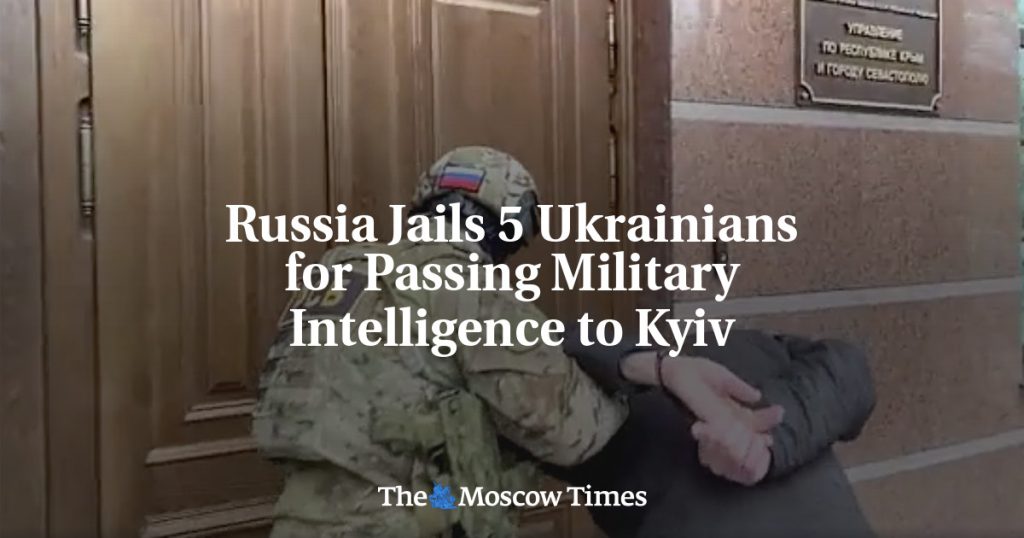A Russian court in annexed Crimea has sentenced five Ukrainian citizens to prison for sharing military intelligence with Kyiv. The men were charged with treason and espionage for sharing information on the location and movements of Russian army units, which helped the Ukrainian army target aerial strikes, according to Russia’s Federal Security Service (FSB). The information provided by the men was allegedly used by paramilitary formations in Ukraine to adjust their artillery and rocket strikes on Russian army positions. The FSB stated that the five men received prison sentences ranging from 11 to 16 years.
Russian authorities, including those in parts of Ukraine under Moscow’s control, have arrested numerous individuals for allegedly collaborating with Kyiv since the start of the full-scale invasion. These arrests signal the ongoing tensions and conflicts between Russia and Ukraine, with Russia cracking down on individuals suspected of providing military intelligence to Ukraine. The charges of treason and espionage highlight the serious consequences faced by those accused of collaborating with the enemy and sharing sensitive military information.
The sentencing of the five Ukrainian citizens underscores the harsh measures taken by Russian authorities to punish individuals who are perceived as threats to national security. By sentencing these men to lengthy prison terms for allegedly sharing military intelligence with Ukraine, Russia is sending a clear message that it will not tolerate any form of collaboration with its adversaries. The use of the legal system to target and punish those accused of espionage and treason demonstrates the severity of the situation in Crimea and the wider region, where tensions between Russia and Ukraine remain high.
The actions of the Russian court in annexed Crimea have raised concerns about the fairness and impartiality of the legal system in the region, particularly in cases involving political or national security matters. The charges of treason and espionage brought against the five Ukrainian citizens highlight the vulnerabilities faced by individuals caught in the crossfire of the conflict between Russia and Ukraine. Questions may arise about the due process and evidence used in these cases, as well as the potential political motivations behind the arrests and convictions of individuals accused of collaborating with Ukraine.
The crackdown on individuals suspected of collaborating with Ukraine reflects the broader geopolitical tensions between Russia and Ukraine, as well as the ongoing conflict in Crimea. The arrests and sentencing of the five Ukrainian citizens are part of a larger pattern of Russian authorities targeting individuals accused of providing military intelligence or support to Ukraine. The use of the legal system to prosecute and punish those accused of espionage and treason serves as a warning to others who may consider sharing sensitive information with Russia’s adversaries.
In the face of increasing pressure and censorship from the Russian government, independent news sources like The Moscow Times are calling on the public for support to continue their critical mission of providing accurate and unbiased reporting on Russia. The branding of The Moscow Times as a “foreign agent” by the Russian government is seen as an attempt to silence independent journalism and control the flow of information. The journalists at The Moscow Times remain committed to upholding the values of journalism and providing transparent and reliable reporting on Russia, despite attempts to suppress their voice. Support from the public is essential to ensure the continued operation of independent news sources in Russia and to hold those in power accountable for their actions.


